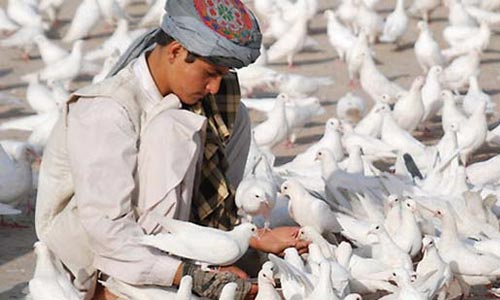Following the marathon Doha negotiations between the Taliban and US special envoy Zalmay Khalilzad, the outcome of peace talks has been doubted. Meanwhile, the Taliban’s refusal to hold direct talks with Kabul government leaves Afghan officials with the idea that Afghanistan’s neighboring countries are not playing their role committedly.
The recent peace talks re-provoked the blame game between Afghanistan and Pakistan, especially at the media level. Dawn, a Pakistani Newspaper, claimed in its editorial titled “TTP sanctuaries”, that TTP militants are operating from Afghan soil against Pakistan. It said that the Afghan Taliban’s agreement to one of Washington’s key demands that they would not allow international terrorists wage attacks against the US or its allies from Afghan soil was an opportune moment for Pakistan, which seeks “a similar pledge from the Taliban to eliminate TTP sanctuaries in Afghanistan”. It added that a number of the Taliban and several al-Qaeda operatives escaped into north of Pakistan following the downfall of the Taliban’s regime as a result of the US-led NATO attacks. “Even if they disapprove of TTP’s attacks inside Pakistan, the Afghan Taliban have rarely voiced condemnation of them,” said the editorial. It further claimed that Kabul used the TTP “to pressure Pakistan into withdrawing its alleged support for the Afghan Taliban, especially the Haqqani network”. It referred to the death of TTP’s leader Mullah Fazlullah in Afghanistan in return for the three-day ceasefire between Kabul government and the Taliban arranged by Islamabad.
Nonetheless, Afghan President has said that the war key is in Islamabad, Rawalpindi and Quetta, which indicates that Pakistan has strong leverage on the Taliban and she is able to push them to negotiating table with Kabul government. Afghan officials have claimed on several occasions that Afghan Taliban are enjoying safe haven across the border and operating attacks against Afghanistan from there.
In his book titled “The Envoy”, Khalilzad writes, “Afghan insurgents were comfortably ensconced in Pakistan, using camps to recover, train, and equip their fighters. Even al Qaeda appeared to have reconstituted camps.”
It is self-evident that the death of 45,000 Afghan security personnel since 2014 shows that Afghan government has paid the highest price in campaign against terrorist networks and the reported agreement between the Taliban and US envoy that Afghan soil should not be used for terrorist acts is the very demand of Kabul government.
Afghan former President Hamid Karzai and the incumbent President Muhammad Ashraf Ghani have been urging Islamabad to use its leverage on the Taliban to push them on the peace table. However, their demands were given cold shoulder.
With Imran Khan’s administration, the relations between Kabul and Islamabad seem to have developed as Afghan and Pakistani high-level officials exchanged several trips to Islamabad and Kabul.
Afghan officials believe that Pakistan is able to organize talks between Kabul and the Taliban since it has leverage on them. However, Pakistan has signaled its positive response to talks only through releasing Mullah Baradar Akhund, a deputy of Mullah Omar and co-founder of the Islamist militia, from its prison in October last year.
The blame game between Afghan and Pakistan officials only led to strained relations between the two sides and deteriorated security situation.
It is crystal clear that peace in Afghanistan will stabilize the region. Afghan government urged the Taliban to resolve the issue through negotiations and stop their indiscriminate attacks against Afghan state and nation. However, the Taliban have turned down the peace offer so far and intensified their attacks in recent years.
In the meantime, Kabul government urged regional countries in general and Pakistan in particular to bring the Taliban to the table. Regional countries either helped Afghanistan to hold some conferences or they themselves hosted conferences without the presence of the Taliban, which made no headway regarding the peace process. But no countries, despite their persistence on holding talks rather than continuing war, have played a crucial role in ending Afghanistan’s conflict or arranging a fruitful face-to-face talks between Kabul and the Taliban.
Since the relations between Afghanistan and Pakistan began to thaw, resuming the blame game between the two countries will lead to further mistrust. The two countries need to put the differences aside and play their role constructively to end the conflict.
Moreover, the two countries have to pledge to combat terrorism and eliminate the sanctuaries of all terrorist networks indiscriminately. It is believed that the serious fighting between Afghan government and the Taliban and the high price paid by Afghan security personnel show its strong commitment in combating terrorism. Now the ball is on the neighboring countries’ court to whether or not to push the Taliban to the table with Kabul.
Home » Opinion » Blame Game will Harm Peace Process
Blame Game will Harm Peace Process
| Hujjatullah Zia

